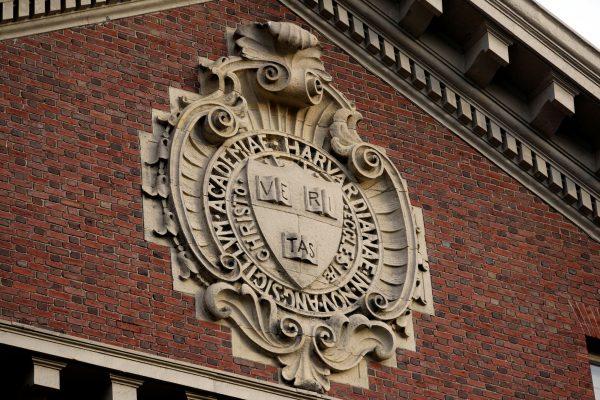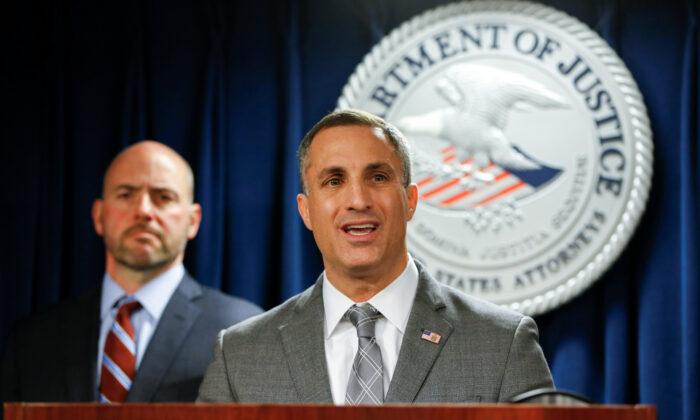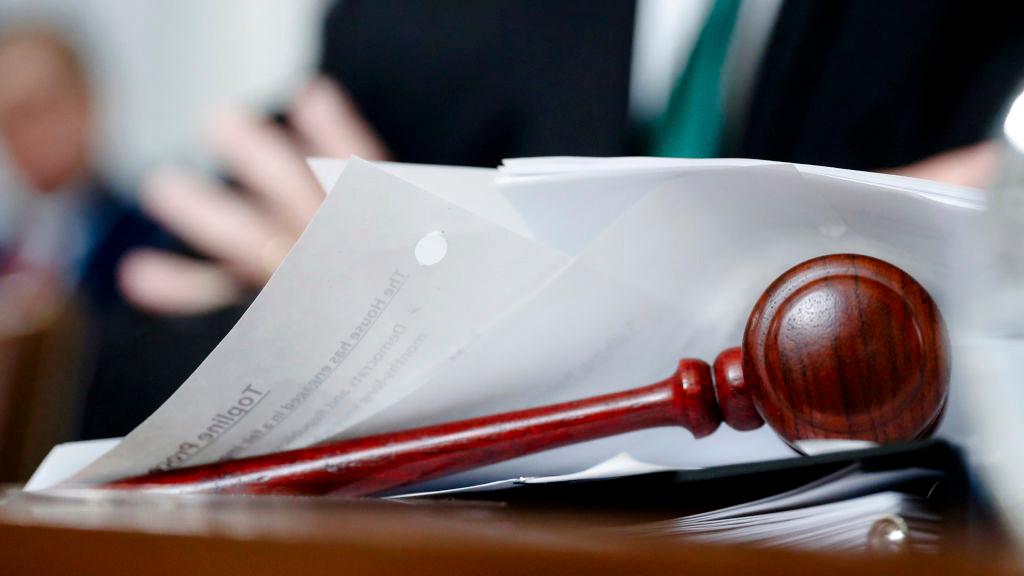In one case, Charles Lieber, chair of the department of chemistry and chemical biology at Harvard University was arrested on Jan. 28 at his office for allegedly lying about funding he received from the Chinese regime.

A Chinese military official was charged on the same day with allegedly falsely identifying herself as a “student” in her visa application to the United States, and lying about her ongoing military service.

Harvard Professor
Lieber, a 60-year-old Harvard professor specializing in nanoscience, allegedly had years of participation in China’s state-funded “Thousand Talents Plan” while working on sensitive U.S. research, prosecutors said.The Chinese recruitment program aims to attract top experts globally and has “rewarded individuals for stealing proprietary information and violating export controls,” the indictment stated.
The researcher has received more than $15 million of funding from the National Institutes of Health (NIH) and Department of Defense since 2008, according to the document. Disclosure of foreign support is part of the requirement for receiving such federal funding.
“Beijing’s money always has strings attached,” Sen. Ben Sasse (R-Neb.), a member of the Senate Select Committee on Intelligence, said in a statement following the announcement of charges against Lieber, adding that “it’s important that Americans steer clear of helping human rights abusers in the Chinese Communist Party.”
Covert Work for Beijing
Lieber began working with the Wuhan University of Technology (WUT) as a “strategic scientist” in 2011, and was involved in the Thousand Talents program from 2012 through 2017 as a contractual participant, the indictment stated.The contract entitled him a salary of $50,000 per month with up to 1 million yuan (then $158,000) of living expenses over three years. Lieber, in exchange, would work for WUT for at least nine months per year, and conduct and publish research for WUT. He was to build credibility for around four to six total scholars and doctoral students and bring in one to three top scientists as visiting scholars.
In January 2013, Lieber signed an agreement for a five-year “cooperative research program” on behalf of Harvard—without consulting Harvard officials—allowing WUT researchers a two-month visit to his department at Harvard each year, the complaint said. The objective of the agreement was to foster advanced research on nanowire-based lithium-ion batteries for electric vehicles. Harvard’s representatives told investigators that he did not have the authority to enter into such contracts.
He also received $1.5 million for establishing a joint research lab at WUT using Harvard’s name and logo without Harvard’s knowledge, a violation of the school’s policy, the document said. When confronted by Harvard officials, he lied by saying WUT acted without his consent.
According to the complaint, Lieber denied any engagement with the Thousand Talent program when Defense Department investigators questioned him about his foreign research disclosure in April 2018. He said he was never asked to join the program but “wasn’t sure” how China categorized him.

He then emailed his associate saying he “lost a lot of sleep worrying about” the Chinese webpage, where he was listed as the director of the lab, adding that he “will be careful about what I discuss with Harvard University” and that “none of this will be shared with government investigators.”
Two Chinese Researchers Charged
Yanqing Ye, a lieutenant in the People’s Liberation Army, was also charged on the same day for visa fraud.The federal complaint said Ye, an exchange student at Boston University from October 2017 to April 2019 on Chinese government sponsorship, did not disclose her continued military service when applying for her visa.
During her exchange program, Ye continued to complete “numerous assignments” for the Chinese military, including retrieving U.S. military intelligence and sending U.S. documents to China, according to the indictment.
Ye was charged with lying about her military background in a visa application and of lying to an FBI officer. She also acted as a Chinese agent—she is currently in China.
Federal investigators also charged Zheng Zaosong, another Harvard medical researcher from China, for allegedly trying to smuggle biological research specimens out of the United States.
From August 2018 to December 2019, Zheng worked at the Wenyi Wei Laboratory at Harvard’s Beth Israel Deaconess Medical Center, researching cancer pathology and cancer cells.
He was arrested on Dec. 9 before boarding a Beijing-bound flight at Boston Logan International Airport, with 21 vials of biological materials stolen from the lab, according to the court document.
Officers found the vials wrapped in plastics and hidden in a sock. Lab analysis found DNA within the specimens, which Zheng admitted he stole in order to advance his research in his China-based laboratory and publish a paper in his name.
Boston FBI agent Joseph Bonavolonta in announcing the charges, said all three individuals are “manifestations of the China threat.”





